#chongzhen emperor
Photo

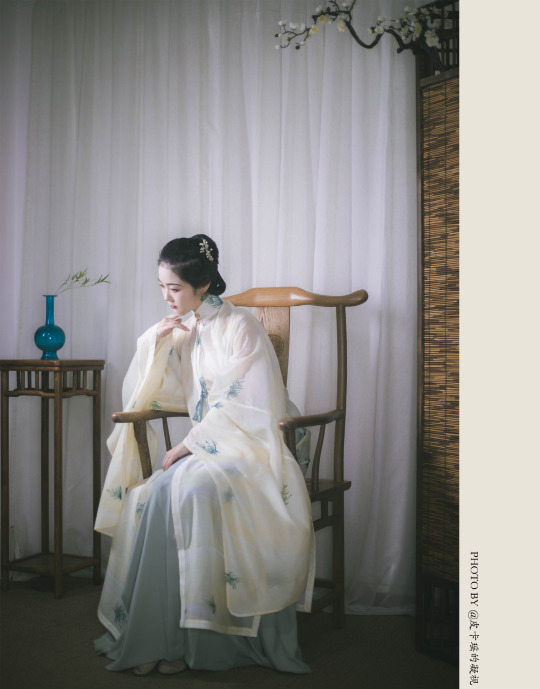
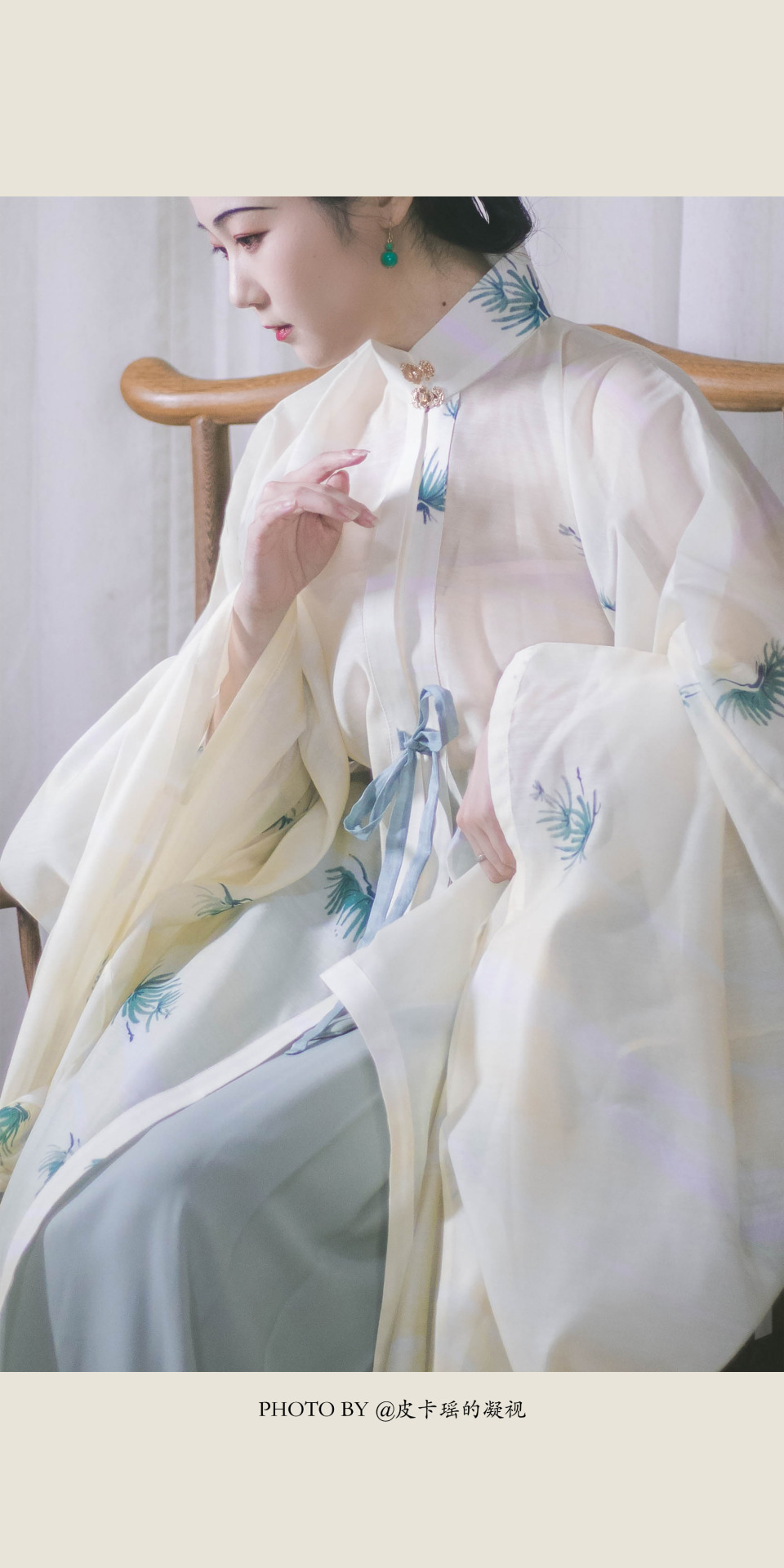






[Hanfu · 漢服]Chinese Ming Dynasty Traditional Clothing Hanfu Based On Late Ming Period Wood Print Painting- 【晚明·崇祯时期仕女】
Late Ming・ Chongzhen Emperor Period Woman Costume & Hairstyle
_______
Recreation Work :@皮卡瑶的凝视
🔗Weibo:https://weibo.com/1784107702/LAs0hDwEh
_______
#Chinese Hanfu#hanfu#Ming Dynasty#Late Ming Period#Chongzhen Emperor Period#hanfu history#hanfu accessories#hanfu art#hanfu fashion#chinese traditional clothing#chinese#chinese coustume#chinese fashion history#chinese art#Ming Dynasty Wood Print Painting#chinese history#historical clothing#chinese historical fashion#historical costuming#historical hairstyles#Hanfu From China#晚明·崇祯时期仕女#皮卡瑶的凝视#Chinese Style#漢服#汉服
111 notes
·
View notes
Text
The Catastrophic Explosion of Beijing's Wanggongchang Arsenal, 1626
New Post has been published on https://china-underground.com/2020/11/22/wanggongchang-explosion/
The Catastrophic Explosion of Beijing's Wanggongchang Arsenal, 1626

The Great Tianqi Explosion or the Wanggongchang Explosion
The Great Tianqi Explosion (天啟 大 爆炸) or the Wanggongchang Explosion (王恭 廠 大 爆炸) was a catastrophic accident that occurred on May 30, 1626, the causes of which are still partially unknown.
Featured image: Illustration of the Wanggongchang incident.
Related article: 1490 Ch’ing-yang Meteor Shower
The explosion contributed to the weakening of the Ming dynasty, already tried by natural disasters, conflicts between factions, and popular rebellions, and was overthrown a few years later. In any case, the incident was so devastating that it overshadowed all other calamities and was interpreted as a punishment from Heaven, and as a warning to correct the sins derived from the emperor’s incompetence.
The incident occurred in a large gunpowder production center in Beijing during the reign of Emperor Tianqi of the Ming Dynasty and claimed the lives of around 20,000 people and could have been caused by some error in the production process or by sabotage.
The Wanggongchang Arsenal, one of six gunpowder factories administered by the Ministry of Works, was located about 3 kilometers south of the Forbidden City, in what would now be the modern Xicheng District.
Most of the details regarding the incident came to us from an official journal of the time entitled Official Notice of the Celestial Calamity, 天 變 邸 抄:
“When the sky was bright and clear, there was a sound like a roar from the northeast to the southwest corner of the capital, and the ashes rose and the houses were uprooted. In a moment there was a great earthquake, and the sky and the earth collapsed, and it was dark as night. From Shunchengmen in the east to Jinbu in the north, three to four miles in length, the surrounding area was destroyed, affecting tens of thousands of homes and people. The area around Wang Gong’s factory is completely devastated, with pieces of corpses everywhere, a suffocating smell filling the air, and rubble falling from the sky, confusing the vision. It is difficult to describe this heartbreaking sight. The roar of the explosion was heard from Hexiwu in the south, in Tongzhou in the east, in Miyun, and Changping in the north. “
The explosion occurred between 9 and 11 am on May 30 and hit an area of about 4 km2, devastating it completely. The ground near the armory sank by about 6.5 meters, but no traces of particularly intense fire were found. The clouds above the epicenter were described as bizarre, multi-colored, similar to silk, some that appeared as a black linghzhi (a mushroom with a characteristic fan shape).
Several government officials perished or were injured in the blast. Some of them died buried alive in their homes. Minister of Works Dong Kewei (董 可 威) broke both arms and later withdrew completely from political life.
At that time, the Forbidden City was being restored, and over 2000 workers were thrown from the scaffolding set up around the buildings and died. The first initial shock threw the servants of the imperial palace into a panic, and the emperor himself took refuge in the Hall of the Union escorted by a single guard who, however, died hit by a falling tile.
The heir to the throne, Prince Zhu Cijiong (朱 慈 炅), aged only seven months, also perished in the accident.
The political, military, and social consequences of the accident were equally significant for the already decadent Ming dynasty.
Emperor Tianqi was forced to publicly announce a repenting edict, issuing 20,000 gold cuttings for relief and rescue operations. The gold used for relief efforts put a strain on the shaky imperial coffers, due to military expeditions to Manchuria to crush the Jurchen rebellion of the Nurhaci, and also due to the fiscal resistance of the wealthy classes in the rich south of the country.
The explosion of the factory resulted in a weakening of the armaments at the disposal of the Ming army, a loss that was no longer filled, and in the death of Prince Zhu Cijiong, thus leaving the emperor without an heir. Tianqi died the following year. The throne was inherited by the ambitious brother Zhu Youjian, with the name of Emperor Chongzhen, whose reckless actions, such as the removal of the powerful eunuch Wei Zhongxian, destabilized the dynasty even more.
source
#Beijing, #EmperorChongzhen, #EmperorTianqi, #MingDynasty
1 note
·
View note
Photo

Day 27: Qin Liangyu!
Qin Liangyu was the daughter of an official in modern-day Chonqing. Her family was Miao rather than Han, and she received an unusual upbringing for a Ming dynasty official’s daughter; she was taught martial arts alongside her brothers, and soon surpassed them as a skilled archer. When she married Ma Qiancheng, a military leader, she went into battle alongside him.
There were many battles to fight. The Ming Dynasty was in turmoil, and rebellions minor and major were springing up across China. Despite his victorious reputation as a general, her husband was soon in political trouble; he died in prison after offended a court eunuch. Qin Liangyu took up command in his place. As she won victory after victory, the last Ming ruler, the Chongzhen Emperor, awarded her a marquis-rank title and wrote poems in her honor.
The Chongzhen Emperor was overthrown by rebels, who in turn were conquered by the invaders from Later Jin who would form the Qing Dynasty. Refugees fled southwards into a short-lived state that would be known as Southern Ming. Qin Liangyu, now an elderly woman, turned her lands into a sanctuary in the midst of this chaos, sheltering thousands of the dispossessed.
After her death in 1648, she was venerated. She and a legendary Song Dynasty female general, Mu Guiying, are often paired as door gods, guardian images on either side of an entrance.
#qin liangyu#history#chinese history#ming dynasty#awesome ladies of history#october 2022#my art#hanfu#with deepest thanks to audreydoeskaren!
64 notes
·
View notes
Text
I mentioned that I might model the defeat of a ruler in my fanfic novella after the suicide of the last Ming emperor to @eightyonekilograms, and described said suicide to him. He went “holy shit” at the bolded part, which indeed has an amazing ring of intense personal horror to it:
In April 1644 his armies entered Peking without a fight, the city gates having been treacherously opened at his coming. It is recorded that Emperor Chongzhen, after hearing that the rebels had entered the city, rang a bell to summon his ministers in order to get their advice or assistance. When none of them appeared, the emperor walked to the imperial garden just outside the walls of the Forbidden City. In this garden was a hill, from the crest of which the emperor and his consorts had been wont to look out over the panorama of Peking. This time the emperor did not mount the hill, but attached a cord to a tree at its foot, and there hanged himself. So died the last ruler of the dynasty that, for better or worse, had ruled China since 1368.
28 notes
·
View notes
Text
China, imperial: 8. Qing or Manchu dynasty period, 1636–1911
The Qing or Manchu dynasty was founded in 1636 by the Manchus, who were originally named the Jurchens, and the founders of the Jin dynasty. The rise of the Qing Empire started with a military conquest of China proper which eventually expanded into Inner Asia by relying on Han-Chinese armies. As a result China, especially during Qianlong's long reign, reached the peak of Sino-centrism that was based on the tributary system. This Sino-centric worldview was challenged by the Western imperialist invasion beginning in the 1840s. The treaty-port system became the new norm in the late Qing period and Qing Empire was eventually overthrown by Han-Chinese revolutionaries in 1911.
Historically, the Qing or Manchu dynasty period (1636–1911) was the last empire in Chinese history. On May 15, 1636, Hong Taiji, the second khan of the Later Jin dynasty, changed his dynasty name to Qing. According to the Chinese belief of five elements, “Qing” symbolizes the element of water, which could effectively overthrow the Ming dynasty which represents the element of fire. The Manchus finally occupied Beijing on June 5, 1644, following the defeat of the peasant rebel, Li Zicheng, who had overthrown the Ming dynasty (1368–1644). Li had forced the last emperor of the Ming dynasty, Chongzhen, to commit suicide. As a result, from 1644 Qing formally became the last Chinese dynasty. The Ming loyalists continued military resistance against the Qing troops in China proper, which included the eighteen inland provinces within the Great Wall that were considered the boundary of the Han, Tang, and Ming dynasties. Finally in 1661 Qing troops occupied Yunnan province where they hanged Yongli, the last emperor of the Southern Ming dynasty. From 1662, the Qing dynasty officially became the sole ruler in China proper.
2 notes
·
View notes
Text
Events 4.25 (before 1940)
404 BC – Admiral Lysander and King Pausanias of Sparta blockade Athens and bring the Peloponnesian War to a successful conclusion.
775 – The Battle of Bagrevand puts an end to an Armenian rebellion against the Abbasid Caliphate. Muslim control over the South Caucasus is solidified and its Islamization begins, while several major Armenian nakharar families lose power and their remnants flee to the Byzantine Empire.
799 – After mistreatment and disfigurement by the citizens of Rome, Pope Leo III flees to the Frankish court of king Charlemagne at Paderborn for protection.
1134 – The name Zagreb was mentioned for the first time in the Felician Charter relating to the establishment of the Zagreb Bishopric around 1094.
1607 – Eighty Years' War: The Dutch fleet destroys the anchored Spanish fleet at Gibraltar.
1644 – Transition from Ming to Qing: The Chongzhen Emperor, the last Emperor of Ming China, commits suicide during a peasant rebellion led by Li Zicheng.
1707 – A coalition of Britain, the Netherlands and Portugal is defeated by a Franco-Spanish army at Almansa (Spain) in the War of the Spanish Succession.
1792 – Highwayman Nicolas J. Pelletier becomes the first person executed by guillotine.
1792 – "La Marseillaise" (the French national anthem) is composed by Claude Joseph Rouget de Lisle.
1808 – Dano-Swedish War of 1808–1809: The Battle of Trangen took place at Trangen in Flisa, Hedemarkens Amt, between Swedish and Norwegian troops.
1829 – Charles Fremantle arrives in HMS Challenger off the coast of modern-day Western Australia prior to declaring the Swan River Colony for the British Empire.
1846 – Thornton Affair: Open conflict begins over the disputed border of Texas, triggering the Mexican–American War.
1849 – The Governor General of Canada, Lord Elgin, signs the Rebellion Losses Bill, outraging Montreal's English population and triggering the Montreal Riots.
1859 – British and French engineers break ground for the Suez Canal.
1862 – American Civil War: Forces under U.S. Admiral David Farragut demand the surrender of the Confederate city of New Orleans, Louisiana.
1864 – American Civil War: In the Battle of Marks' Mills, a force of 8,000 Confederate soldiers attacks 1,800 Union soldiers and a large number of wagon teamsters, killing or wounding 1,500 Union combatants.
1882 – French and Vietnamese troops clashed in Tonkin, when Commandant Henri Rivière seized the citadel of Hanoi with a small force of marine infantry.
1898 – Spanish–American War: The United States Congress declares that a state of war between the U.S. and Spain has existed since April 21, when an American naval blockade of the Spanish colony of Cuba began.
1901 – New York becomes the first U.S. state to require automobile license plates.
1915 – World War I: The Battle of Gallipoli begins: The invasion of the Turkish Gallipoli Peninsula by British, French, Indian, Newfoundland, Australian and New Zealand troops, begins with landings at Anzac Cove and Cape Helles.
1916 – Anzac Day is commemorated for the first time on the first anniversary of the landing at ANZAC Cove.
1920 – At the San Remo conference, the principal Allied Powers of World War I adopt a resolution to determine the allocation of Class "A" League of Nations mandates for administration of the former Ottoman-ruled lands of the Middle East.
1933 – Nazi Germany issues the Law Against Overcrowding in Schools and Universities limiting the number of Jewish students able to attend public schools and universities.
1938 – U.S. Supreme Court delivers its opinion in Erie Railroad Co. v. Tompkins and overturns a century of federal common law.
0 notes
Text
"Controversial Book that Drew Startling Parallels with Xi Jinping Triggers Unprecedented Recall"
A book that suggested the downfall of the Ming dynasty was the result of an incompetent emperor has been removed from sale in China. The book, titled “Chongzhen: The Diligent Emperor of a Fallen Dynasty,” was recalled by its publisher, Dook Media Group, citing printing problems. However, it is believed that the recall was part of a broader attempt to suppress any comparisons between the emperor…
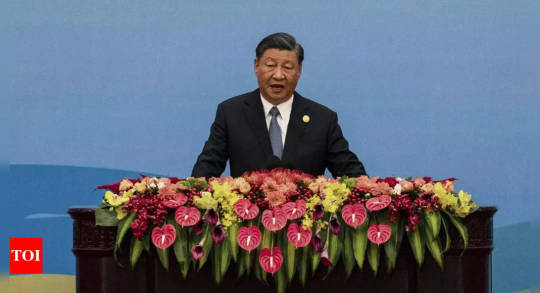
View On WordPress
0 notes
Text
"Controversial Book that Drew Startling Parallels with Xi Jinping Triggers Unprecedented Recall"
A book that suggested the downfall of the Ming dynasty was the result of an incompetent emperor has been removed from sale in China. The book, titled “Chongzhen: The Diligent Emperor of a Fallen Dynasty,” was recalled by its publisher, Dook Media Group, citing printing problems. However, it is believed that the recall was part of a broader attempt to suppress any comparisons between the emperor…

View On WordPress
0 notes
Text
"Controversial Book that Drew Startling Parallels with Xi Jinping Triggers Unprecedented Recall"
A book that suggested the downfall of the Ming dynasty was the result of an incompetent emperor has been removed from sale in China. The book, titled “Chongzhen: The Diligent Emperor of a Fallen Dynasty,” was recalled by its publisher, Dook Media Group, citing printing problems. However, it is believed that the recall was part of a broader attempt to suppress any comparisons between the emperor…
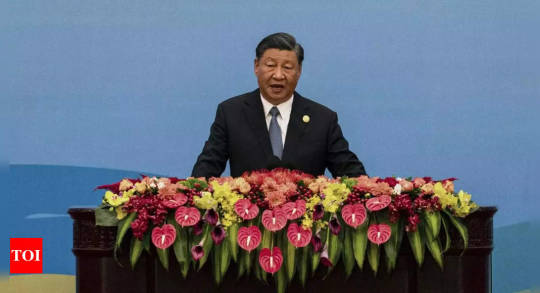
View On WordPress
0 notes
Video
youtube
Amazing Historical Events That Occurred on 4/25🎉 #shorts #history
Welcome to our latest video on the fascinating events that occurred on April 25th in history. From groundbreaking discoveries to tragic endings, this day has seen some incredible moments that have shaped our world. Let's start with one of the most significant events that took place on April 25th, 1507. This was the day when the German cartographer Martin Waldseemüller made history by being the first person to use the name "America" on his world map. This was a landmark moment in the history of cartography, and the map is now considered a priceless artifact.
Moving forward to 1607, Captain Edward Maria Wingfield was named President of the Jamestown governing council shortly before he landed in America. This was a critical moment in American history, as it marked the beginning of the establishment of the first permanent English settlement in North America.
April 25th, 1644, saw the tragic end of the last Ming Emperor Chongzhen. Rather than be captured, he chose to hang himself from a tree on Jing Mountain in Beijing, ending the Ming dynasty and paving the way for the Qing dynasty.
In 1792, the guillotine was first used in France to execute Nicolas Pelletier, a notorious highwayman. This event marked the start of a new era in French history, as the guillotine became the primary means of execution during the French Revolution.
Finally, in 1901, New York became the first state to require automobile license plates with a $1 fee. This was the beginning of the regulation of automobiles, which eventually led to the creation of the DMV and the regulations we have in place today.
In conclusion, April 25th has seen some incredible historical moments that have shaped our world. From the discovery of America to the end of an empire, this day has seen it all. Join us for more exciting history lessons in our upcoming videos. Don't forget to like, share, and subscribe to our channel for more content.
0 notes
Text
This is something I've mentioned here and elsewhere but I don't believe I've made a specific post talking about, so I thought I'd do it here.
The Patchouli and Remilia of this blog have a "default relationship", if that makes sense. That of being each other's wives. Now I should clarify that this blog is a multiship blog so that's not the case when someone is shipping with one of them, it's not like either would cheat on their spouse. I should also clarify that, of course, that's not a relationship I'd force onto anyone else. If you're writing Remilia/Patchouli I'm not going to have mine treat them like they're married (unless you want to I suppose). But, by default, when I'm writing them Remilia and Patchouli are married.
Anyways, with that mentioned I thought I'd write a little bit about how they ended up with one another. Now I will note a bit of canon divergence on my part. Patchouli is stated to be a witch who "lived for 100 years" in her original profile, but I kind of treat her as if her lifespan far exceeded 100 years as you'll see shortly.
Remilia Scarlet was born in Picardy during the reign of Louis XII in 1502. The daughter of Charles of Angouleme making her the younger half-sister of the future King Francis. While Remilia may claim to be a descendant of the famed Vlad Teppes, this is untrue, however she really is of French noble blood.
Well, biologically she was not related to Vlad. Old Vladdy really did become a vampire and the one that bit Remilia may well have been turned by him. Regardless, Remilia scarlet became a vampire in the year 1517, but two years after the coronation of her half-brother. The intention was to gain a pawn close to the king but even then Remilia was too clever to allow herself to be someone's peon. Her sire was dead not long after she convinced him to turn Flandre as well (a decision she questions fairly regularly).
So my Remilia is French, what about Patchouli? Well, narrowing down Patchouli's homeland is a bit tougher. Her magic is based off of Wuxing, the Chinse five elements, but she's also described as a "Eastern Style Western Magician", which implies to me that she herself is European. The way I rectify these two facts is through the idea that Patchouli is herself the daughter of a European magician (as she is a naturally born one) in the service of the Wanli Emperor of Ming. So procured for her remarkable talent.
Being raised in China, Patchouli learned the style of elemental magic practiced there. She, alongside her mother, would enter into the service of the Chongzhen emperor. The Manchu Invasion combined with the peasant uprisings of the 1640s and the death of the Chongzhen emperor forced Patchouli to flee the country entirely. Returning west in the accompaniment of a bodyguard of the former emperor (it's Meiling).
Eventually she would arrive within Europe. By this point Remilia had watched her brother grow old and die of fever, while she remained eternally young. In the fifty years after that, the house descended from her brother would fall from power. Following a brief period of chaos her distant cousins established the House of Bourbon as the ruling family.
Remilia never truly held a title but nonetheless held some sway throughout it all. She and Patchouli first met in the Palace of Versailles. There the "Eastern Style Western Magician" was considered to be just as much a strange curiosity as "Charles's eternally youthful bastard" (as an aside never call Remilia this).
The pair hit it off well. Striking up an immediate friendship as the two oddities of Versailles. What was initially a strange friendship evolved into a deep closeness. Their courting process, in truth, lasted nearly century. It took Remilia a decade to even work up the courage to tell Patchouli she liked her. Given the time and era such a relationship was quite obviously kept a secret but they were eventually wed. At the witching hour, on Remilia's insistence.
The French Revolution was the nail that finally forced them to flee from France and their old lives. It was the time that Remilia took up the surname Scarlet (A reference to her mother). Thankfully she made off with a great degree of royal treasure on her way out. Her ninth cousin Louis wasn't going to need it given what happened.
From there they were vagabonds for a short while. Drifting from the shadows of one court to another for quite some time. This is a headcanon about how Patchy and Remmy met though, so I won't bore you with those details.
1 note
·
View note
Text
Return to Daming to be a gifted scholar
At least there was a living room with candles in the sedan chair. Of course, Wei Zhongxian was sitting high in the middle, while Master Zhang was sitting on the side seat next to him. Seeing Master Zhang admiring the curious appearance of the ten steamed stuffed buns decorated in the sedan chair, Wei Zhongxian said with a smile, "Monkey cub, the guest seat of this sedan chair is made of side leather. Except for a few fathers-in-law of Si Lijian,12 Volt Motor With Gearbox, even your adopted brothers haven't been blessed." "The child takes the liberty to thank the godfather for raising his love to open the big young master's mouth to thank him respectfully, but in his stomach he cursed the old man Wei for being evil and immoral. He wanted to pull himself into such an unlucky eunuch sedan chair.". Wei Zhongxian smiled and waved his hand. "Monkey cub," he asked kindly. Last time our family sent Cui Chengxiu to see you and asked you if you were interested in being the prefect of Jingying. You said you wanted to think about it. How are you thinking about it now? "Well," Master Zhang was just about to answer. But Wei Zhongxian waved his hand to stop him. Then he pouted out of the window and asked, "Monkey cub, do you see that flat yellow sedan chair?"? Do you know who is sitting in the sedan chair? Master Zhang looked out of the sedan chair and saw that Wei Zhongxian was talking about a big eight-lift sedan chair with the symbol of Wang Yeh on it. He replied, "Back to Godfather,brushless gear motor, that's the sedan chair of Zhu Youjian, the king of letters." It was not until this day that Master Zhang remembered that he had seen the future Chongzhen Zhu Youjian in the palace today. It's just that Zhu Youjian is so low-key that he hasn't stood up since he sat with Zhu Youjian, so Master Zhang didn't notice him. Yes, it's King Xin. Wei Zhongxian nodded and said lightly, "When the emperor visited Beihai this year, he accidentally fell into the water. After he was rescued, the emperor had a high fever for more than a day.". I almost couldn't hold it. At that time, the emperor was so sick that he summoned King Xin and a monkey cub. Do you know why the emperor summoned King Xin? Master Zhang kept silent like a cicada in cold weather. Although he immediately guessed the reason, he did not dare to speak. It was better to pretend to be confused when it came to the transmission of imperial power. It was a pity that Wei Zhongxian was also an old sparrow in the Machiavellian whirlpool. He immediately saw what Master Zhang was thinking and said with a smile, "Don't worry. This sedan chair is just what you said, Godfather and you two.". Still afraid of Godfather leaking out? "Yes." Master Zhang respectfully agreed, then peeked at Wei Zhongxian's face and said cautiously, Planetary Gear Motor ,Vending Machine Motor, "If the boy didn't guess wrong, the emperor summoned the king at that time, and he was preparing for the funeral.". Plan to pick up the location and leave it to my younger brother: QiSui.m, Jar e-book download paradise "Yes, the emperor did not say such a thing, but his heart must be full of luck." Wei Zhongxian nodded slightly, and Yin Yin said, "At that time, the emperor summoned King Xin to the palace.". They are all big companions (eunuch male nannies) who grew up with them! Our family is the emperor's companion. Do you know who is the king's companion? Master Zhang, who did not know that he was ignorant, shook his head blankly. Wei Zhongxian said sullenly,Gear Reduction Motor, "It's Cao Huachun!"! The dog slave was Wang An's confidant and had close contacts with the treacherous court officials of the Donglin Party. As a result, it was sent to Nanjing by our family. If King Xin succeeded to the throne and put him in an important position, the fate of our family would be worse than that of Wang An. Wang An died at the hands of Wei Zhongxian. ichgearmotor.com
0 notes
Text
The Catastrophic Explosion of Beijing's Wanggongchang Arsenal, 1626
New Post has been published on https://china-underground.com/2020/11/22/wanggongchang-explosion/
The Catastrophic Explosion of Beijing's Wanggongchang Arsenal, 1626
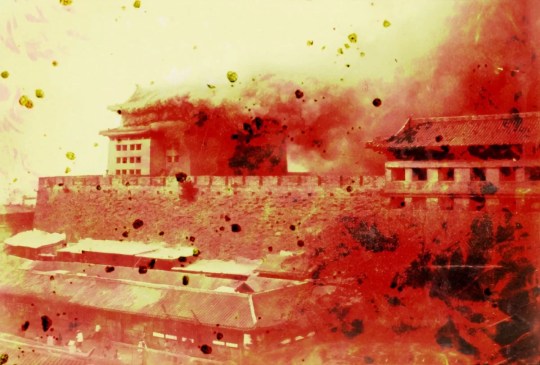
The Great Tianqi Explosion or the Wanggongchang Explosion
The Great Tianqi Explosion (天啟 大 爆炸) or the Wanggongchang Explosion (王恭 廠 大 爆炸) was a catastrophic accident that occurred on May 30, 1626, the causes of which are still partially unknown.
Featured image: Illustration of the Wanggongchang incident.
Related article: 1490 Ch’ing-yang Meteor Shower
The explosion contributed to the weakening of the Ming dynasty, already tried by natural disasters, conflicts between factions, and popular rebellions, and was overthrown a few years later. In any case, the incident was so devastating that it overshadowed all other calamities and was interpreted as a punishment from Heaven, and as a warning to correct the sins derived from the emperor’s incompetence.
The incident occurred in a large gunpowder production center in Beijing during the reign of Emperor Tianqi of the Ming Dynasty and claimed the lives of around 20,000 people and could have been caused by some error in the production process or by sabotage.
The Wanggongchang Arsenal, one of six gunpowder factories administered by the Ministry of Works, was located about 3 kilometers south of the Forbidden City, in what would now be the modern Xicheng District.
Most of the details regarding the incident came to us from an official journal of the time entitled Official Notice of the Celestial Calamity, 天 變 邸 抄:
“When the sky was bright and clear, there was a sound like a roar from the northeast to the southwest corner of the capital, and the ashes rose and the houses were uprooted. In a moment there was a great earthquake, and the sky and the earth collapsed, and it was dark as night. From Shunchengmen in the east to Jinbu in the north, three to four miles in length, the surrounding area was destroyed, affecting tens of thousands of homes and people. The area around Wang Gong’s factory is completely devastated, with pieces of corpses everywhere, a suffocating smell filling the air, and rubble falling from the sky, confusing the vision. It is difficult to describe this heartbreaking sight. The roar of the explosion was heard from Hexiwu in the south, in Tongzhou in the east, in Miyun, and Changping in the north. “
The explosion occurred between 9 and 11 am on May 30 and hit an area of about 4 km2, devastating it completely. The ground near the armory sank by about 6.5 meters, but no traces of particularly intense fire were found. The clouds above the epicenter were described as bizarre, multi-colored, similar to silk, some that appeared as a black linghzhi (a mushroom with a characteristic fan shape).
Several government officials perished or were injured in the blast. Some of them died buried alive in their homes. Minister of Works Dong Kewei (董 可 威) broke both arms and later withdrew completely from political life.
At that time, the Forbidden City was being restored, and over 2000 workers were thrown from the scaffolding set up around the buildings and died. The first initial shock threw the servants of the imperial palace into a panic, and the emperor himself took refuge in the Hall of the Union escorted by a single guard who, however, died hit by a falling tile.
The heir to the throne, Prince Zhu Cijiong (朱 慈 炅), aged only seven months, also perished in the accident.
The political, military, and social consequences of the accident were equally significant for the already decadent Ming dynasty.
Emperor Tianqi was forced to publicly announce a repenting edict, issuing 20,000 gold cuttings for relief and rescue operations. The gold used for relief efforts put a strain on the shaky imperial coffers, due to military expeditions to Manchuria to crush the Jurchen rebellion of the Nurhaci, and also due to the fiscal resistance of the wealthy classes in the rich south of the country.
The explosion of the factory resulted in a weakening of the armaments at the disposal of the Ming army, a loss that was no longer filled, and in the death of Prince Zhu Cijiong, thus leaving the emperor without an heir. Tianqi died the following year. The throne was inherited by the ambitious brother Zhu Youjian, with the name of Emperor Chongzhen, whose reckless actions, such as the removal of the powerful eunuch Wei Zhongxian, destabilized the dynasty even more.
source
#Beijing, #EmperorChongzhen, #EmperorTianqi, #MingDynasty
0 notes
Photo
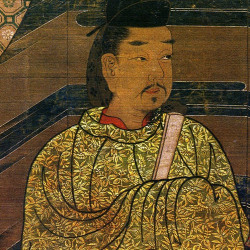


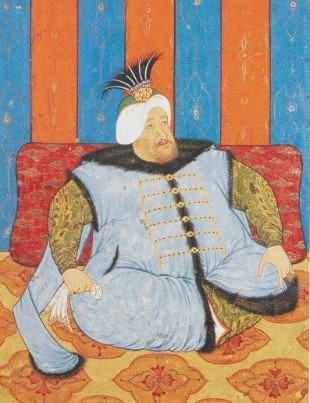





Royal Birthdays for today, February 6th:
Daigo, Emperor of Japan, 885
Joanna, Princess of Portugal, 1452
Chongzhen Emperor, Emperor of China, 1611
Mustafa II, Ottoman Sultan, 1664
Anne, Queen of Great Britain, 1665
Prince Thomas, Duke of Genoa, 1854
Marie Christine, Princess of Belgium, 1951
Marie, Princess of Denmark, 1976
Louise, Princess of Belgium, 2004
#queen anne#princess marie#princess marie christine#princess louise#prince thomas#mustafa ii#Chongzhen emperor#joanna of portugal#emperor daigo#royal birthdays#long live the queue
32 notes
·
View notes
Text
Mulan And The Chinese Women Warriors of History and Legend
https://ift.tt/eA8V8J
While American audiences know the story of Mulan through the 1998 animated Disney film and the upcoming live-action reboot, they may not know that the films are based on a Chinese legend. Hua Mulan is a legendary figure whose story was first told in “Ballad of Mulan,” a folksong first transcribed in the 6th century. In the legend, Mulan is a girl who disguises herself as a man and goes to war in place of her father. Mulan fights for many years as part of the army and, after earning much honor and gifts from the emperor, returns home to her family. Only then does she reveal her gender identity.
While Mulan may be the most familiar of woman Chinese warriors (at least to American audiences), she’s only one in a rich history of historical and legendary female heroes in Chinese history. With the live-action adaptation of Mulan releasing on Disney+ this Friday, here are some of the highlights you might encounter when brushing up on your Chinese legends and history—figures who perhaps warrant their own feature film adaptation…
Xun Guan
At thirteen, Xun Guan was already an accomplished martial artist and tactician. Her father, Xun Song, was the governor of Xianyang in the late 200s A.D. One night, when the castle was under siege, Xun Song was ready to lead a force against the opposing soldiers. Convinced that her father leaving the castle would be bad for morale, she proposed that instead she lead a group of elite soldiers out to defeat the enemy. Even though she was only thirteen, Xun Gun had her father’s trust, and he sent her out. Once outside the walls, Xun Guan immediately spotted a weak spot in the enemy’s position, and she and her troops were triumphant against them, successfully allowing the castle to hold out until more reinforcements could arrive.
Pingyang
During much of Pingyang’s lifetime in the early 600s, the emperor, Yangdi, was incompetent, greedy, and vain—he’s become a villain of Chinese history. Pingyang was the daughter of military commander Li Yuan, and became the wife of Chai Shao, the leader of Yangdi’s palace guard. Yangdi decided that Li Yuan was just too good at his job, so he trumped up false charges and had Li Yuan arrested, only to realize that Li Yuan was the only person who could protect Yangdi from people who actually were plotting against him. Yangdi released Li Yuan, but the damage was done: now Li Yuan wanted Yangdi dead, as well. As Li Yuan rebelled, Chai Shao and Pingyang had to decide how both of them could safely support her father; Chai Shao left first to openly join Li Yuan’s rebellion, and Pingyang later escaped on her own, braving the danger because she was confident she could hide in plain sight.
She journeyed back to her family’s lands and threw open the larders, endearing the people to her and recruiting the first members of what would become known as the Army of the Lady, or the Woman’s Army. As the war continued, Pingyang made alliances and built an army 70,000 strong, keeping them all under a strict code of conduct the prohibited looting, raping, and pillaging. Where the army went, they brought food with them to feed the locals, so they were greeted as liberators. Yangdi dismissed Pingyang as a threat (she was just a woman, after all!), until it was far too late; her forces were unhindered by Yangdi’s troops, and they joined up with Li Yuan and Chai Shao for the final attack on the capital—and, in their victory, the establishment of the Tang Dynasty.
Wu Zetian
In the late 600s, China had a woman emperor. Depending on which historical records you read (the sources tend to be very biased against or very biased toward the empress), she lied, cheated, and murdered her way to the throne—and did more of the same to stay there. She started her imperial career as the favorite concubine of Emperor Taizong. When he died, she married his son, the new emperor, Gaozong. Some sources imply that a romance was going on long before the old emperor’s death; others suggest she was so good at courtly intrigue that Gaozong kept her by his side and ruled equally with her, relying on her political savvy. After Gaozong’s death, their children were in line for the throne; Wu poisoned the eldest, exiled the second, and had plans to manipulate the third and continue to rule. When that son showed too much backbone (and made too many other courtiers angry), she had him deposed, replaced him with his younger brother, and then eventually deposed that child, too, taking on the mantle of rule for herself. Though her rule as emperor was short, she made a number of state improvements in religion, literature, and education—and some historians credit those changes with still having an influence on modern Chinese scholarship.
Liang Hongyu
Although she started her career as a musician, Liang Hongyu ended up using her instrumental skills for a more military purpose. She is said to have met her husband, military officer Han Shizhong, when she was performing as a singer and drummer for his troop. They married in 1121, and she later fought by his side as the army pushed back an invasion by the Huns. The drumming comes in because, during that era, commands were sent to different units in the military through flags and drum signaling. Her drummed orders (and the strategy she came up with) are credited with leading a group of only 8,000 soldiers to victory against a force of 100,000 Hun warriors.
Qin Liangyu
Fighting against the Manchus was a family experience for Qin Liangyu, who went to war alongside her brothers in the early 1600s. When the Manchus—from beyond the Great Wall—threatened Beijing, Qin Liangyu led troops from Sichuan to defend the capital. But there were also rebel forces within the Ming Dynasty, and Qin Liangyu fought against them as well, alongside her son, Ma Xianglin. There’s not just one story of Qin Liangyu’s successes; she fought so many successful campaigns that the Chongzhen Emperor appointed her Crown Prince’s Guardian and a title equivalent to marquis. When the Ming Dynasty fell during Qin Liangyu’s later years, she remained in control of an area of Sichuan, where she helped settle 100,000.
Wu Mei
Women in martial arts are common enough in modern schools (and modern film), but they’ve been around much longer! In fact, the founder of the famous kung fu style Wing Chun was one of the legendary five elders of Shaolin Martial Arts, was a woman. Buddhist nun Wu Mei (also known as Ng Mui) survived the destruction of the Shaolin Temple of Dengfeng during the Qing Dynasty. The shaolin practitioners had been accused of anti-Qing activities, and the army went to destroy them for it. In the bloody battle that followed, only the five known as the five elders survived. They’re credited with spreading martial arts across China, and Wu was said to have invented some of the most important styles. Her Wing Chun is possibly the best known of these, named after Wu’s first student—also a woman—Yim Wing Chun.
Ching Shih
In the early 1800s, when the Golden Age of piracy had already faded in the Caribbean, a pirate queen was sailing her fleet, commanding as many as 80,000 outlaws (sources differ), in the South China Sea. History has forgotten her birth name—Ching Shih translates to “widow of Ching”—but not her amazing deeds, which have put her down in the history books as one of the most successful pirates in history. Ching Shih worked as a prostitute until she married the notorious pirate Cheng I (who was reportedly impressed with her shrewd business sense), who had united different factions of pirates into his Red Flag Fleet.
Legends say that she required half the fleet to belong to her as a condition of the marriage, and when Cheng I died six years later, she took control of the entire fleet. She kept order by enforcing a strict pirate code, and though the Qing dynasty officials, Portuguese Navy, and the East India Company all tried to defeat the fleet, she ruled the waves, only ending her piratical activities when she was offered amnesty from the Chinese government. She lived until she was 69, and she’s the inspiration behind Mistress Ching, one of the Pirate Lords in the Pirates of the Caribbean franchise.
Yu Shu Lien and Jen Yu
These two are completely fictional, but as far as pop culture goes, these women warriors cannot be left out. In the film Crouching Tiger Hidden Dragon, Jen Yu (played by Zhang Ziyi) is a teenager and an amazing martial artist who has been secretly trained by the villainous Jade Fox, under the nose of Jen’s father, the governor. Yu Shu Lien (played by Michelle Yoeh) owns and runs a private security company; she’s close friends with Li Mu Bai, and she agrees to go with him to take his sword, the Green Destiny, as a gift to a benefactor. When the Green Destiny is stolen, they track it to Governor Yu’s mansion. Eventually, Jen Yu is discovered as the thief, but her youth and talent make both Li Mu Bai and Yu Shu Lien sympathetic to her, even after they realize she’s been taught by Li Mu Bai’s enemy, Jade Fox. Later in the film, Yu Shu Lien tries to teach Jen Yu a lesson, and the two have one of the best choreographed multi-weapon epic martial arts movie fights in the history of martial arts movies.
Aero
Another fictional Chinese hero is Aero, Marvel’s manhua series star. When she’s not being a superhero, Lei Ling is an architect in Beijing. When the monsters start coming, however, she takes to the sky as Aero, the protector of her city. Using powers of manipulating winds and air currents, she struggles with the destruction caused by supervillains, because her passion is for building and creating, not for seeing things torn down. The character was first introduced in the Agents of Atlas comic, but she started starring in her own ongoing comic series in 2019. It’s too much to hope that we’ll get a hint of her in the MCU’s upcoming Shang Chi, but the ongoing series, written by Zhou Liefen with stories by Alyssa Wong and Greg Pak, and art by Keng and Pop Mhan, is definitely worth picking up.
Honorable Mention: Cassandra Cain
I didn’t know this when I watched Birds of Prey (and the Fantabulous Emancipation of One Harley Quinn), but Cassandra Cain—the thief kid who swallows the film’s macguffin—has a long and awesome history in DC comics. She’s a first generation Chinese American; her mother, Lady Shiva, is a dangerous assassin who fled from her village, and her father, David Cain, is one of Ra’s al Ghul’s henchmen. It’s not a love match—he blackmails her into having his child, and then he raises Cassandra to be the perfect assassin and bodyguard. But when she was just eight years old, her empathy made her reject a path of killing, and she ends up in Gotham, where she saves Commissioner Gordon’s life and becomes Batgirl. In fact, Cassandra Cain was the first Batgirl to have her own standalone series run (in 2000). Eventually, after a series of twists and turns, she takes a gig working as one of the global team of Batmen as the Black Bat, where she fights crime in Hong Kong. It’s hard to imagine the Birds of Prey version matching up, but I’d love to see that character in more DC movies!
Mulan premieres on Disney+ on September 4th. Find out how and when you can access it here.
The post Mulan And The Chinese Women Warriors of History and Legend appeared first on Den of Geek.
from Den of Geek https://ift.tt/2Z5Xbmi
7 notes
·
View notes
Note
What... is the Shun dynasty?
A very short lived dynasty that attempted to claim China, headed by a former farmer named Li Zicheng, which successfully claimed Beijing and put an end to the Ming Dynasty with the suicide of the Chongzhen Emperor. It TENDS to not be discussed rather often because it only lasted for. About a month or two. Mainly because, as is a recurring theme in Chinese history (and really the history of the world): It’s comparatively easy to topple a dynasty and name yourself Emperor. It might even be easy to get other people to consider yourself as such and to rule, albeit in a limited capacity. But it’s another to actually consolidate your power and rule long term, especially in an area as vast as China. And SOMEONE (Li Zicheng) made some, to put it diplomatically, stupid ass decisions. The later Qing Dynasty would paint him as a usurper and the dynasty itself as illegitimate. What, later dynasties ignoring or demonizing those that came before them? Never had THAT happen before. Oh, hello Qin Shi Huang and Wu Zetian, I didn’t see you there. Mainly because your successors successfully made a legend noire around your reigns.
But yeah, controversial/debated because of the obvious brevity/the kind of lack of true stability and continuity that’s kind of essential for a “real” dynasty.
So, yeah, if I was going to be doing MORE on this one outside of a shitpost, I would probably go straight from Ming -> Qing, which was incidentally how my teacher in my one (1) History and Culture of China class taught it.
4 notes
·
View notes